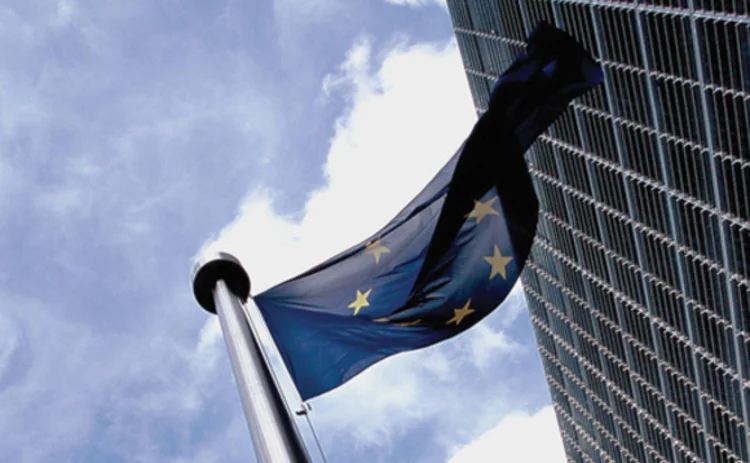European Commission: Post-Crisis Regulation Must Focus on Fintech
Fintech developments and implementation requires greater regulatory supervision, according to the European Commission's vice president.

While delivering the keynote speech at the this year’s European Securities and Markets Authority (Esma) conference on October 17 in Paris, Dombrovskis said that the continuous evolution of the financial markets meant that new elements such as fintech and green finance required new methods of regulatory supervision.
“Europe has what it takes to develop a globally competitive fintech sector,” he said. “But fintech firms need coherent regulation to scale up and take full advantage of the single market. In our review, we give the European Supervisory Authorities (ESAs) a strong coordinating role for national fintech initiatives, such as innovation hubs and regulatory sandboxes.”
Emerging technologies such as blockchain and distributed-ledger technology (DLT) have posed regulatory bodies significant questions as to how they should be regulated despite the industry pushing ahead with various development projects.
One such method has been the establishment of regulatory sandboxes where fintech firms are able to test new technologies or models within a low-risk, controlled environment with oversight from regulatory bodies, which can then be evaluated prior to industry adoption.
Dombrovskis’ sentiments on fintech-focused supervision were echoed by other speakers during the event. Olivier Guersent, director general of the European Commission, said that it was time to “move beyond financial crisis regulation to post-crisis regulation, most notably in new areas like fintech.”
While delivering the closing remarks at the one-day conference, Ashley Alder, chair of the International Organization of Securities Commissions (Iosco), said that while the post-crisis reforms such as Mifid II have been successful in increasing stability for financial systems, he questioned whether such rules would protect markets and their participants against new risks caused through the development and introduction of technology.
Dombrovskis also confirmed that there would be no further delays to the introduction of Mifid II, following industry calls to postpone the implementation of the new regulatory regime until Monday 8, January. It appears as though market participants are “uncomfortable” moving to the new regulatory dispensation on January 3—a Wednesday—instead arguing that the move would be preferable the following Monday.
“The deadline for Mifid II was already extended once, so we do not plan further extension of the deadline,” he confirmed.
Only users who have a paid subscription or are part of a corporate subscription are able to print or copy content.
To access these options, along with all other subscription benefits, please contact info@waterstechnology.com or view our subscription options here: http://subscriptions.waterstechnology.com/subscribe
You are currently unable to print this content. Please contact info@waterstechnology.com to find out more.
You are currently unable to copy this content. Please contact info@waterstechnology.com to find out more.
Copyright Infopro Digital Limited. All rights reserved.
As outlined in our terms and conditions, https://www.infopro-digital.com/terms-and-conditions/subscriptions/ (point 2.4), printing is limited to a single copy.
If you would like to purchase additional rights please email info@waterstechnology.com
Copyright Infopro Digital Limited. All rights reserved.
You may share this content using our article tools. As outlined in our terms and conditions, https://www.infopro-digital.com/terms-and-conditions/subscriptions/ (clause 2.4), an Authorised User may only make one copy of the materials for their own personal use. You must also comply with the restrictions in clause 2.5.
If you would like to purchase additional rights please email info@waterstechnology.com
More on Regulation
Off-channel messaging (and regulators) still a massive headache for banks
Waters Wrap: Anthony wonders why US regulators are waging a war using fines, while European regulators have chosen a less draconian path.
Banks fret over vendor contracts as Dora deadline looms
Thousands of vendor contracts will need repapering to comply with EU’s new digital resilience rules
Chevron’s absence leaves questions for elusive AI regulation in US
The US Supreme Court’s decision to overturn the Chevron deference presents unique considerations for potential AI rules.
Aussie asset managers struggle to meet ‘bank-like’ collateral, margin obligations
New margin and collateral requirements imposed by UMR and its regulator, Apra, are forcing buy-side firms to find tools to help.
The costly sanctions risks hiding in your supply chain
In an age of geopolitical instability and rising fines, financial firms need to dig deep into the securities they invest in and the issuing company’s network of suppliers and associates.
Industry associations say ECB cloud guidelines clash with EU’s Dora
Responses from industry participants on the European Central Bank’s guidelines are expected in the coming weeks.
Regulators recommend Figi over Cusip, Isin for reporting in FDTA proposal
Another contentious battle in the world of identifiers pits the Figi against Cusip and the Isin, with regulators including the Fed, the SEC, and the CFTC so far backing the Figi.
US Supreme Court clips SEC’s wings with recent rulings
The Supreme Court made a host of decisions at the start of July that spell trouble for regulators—including the SEC.








